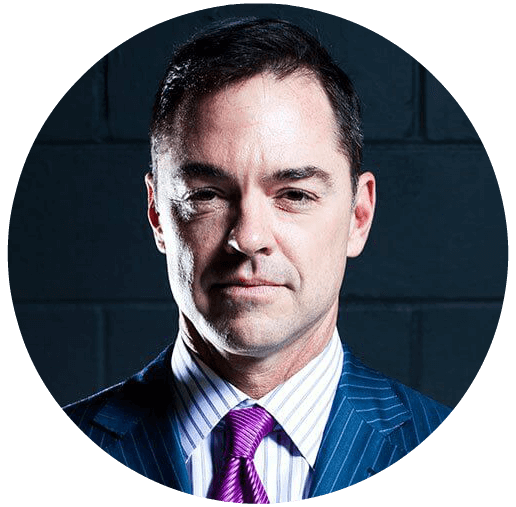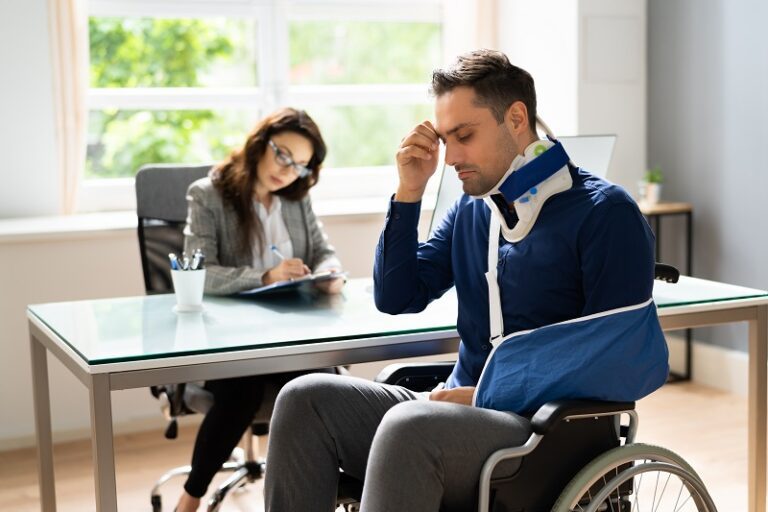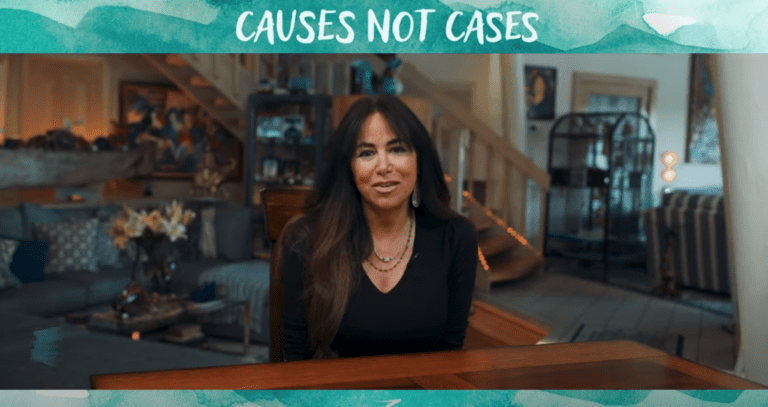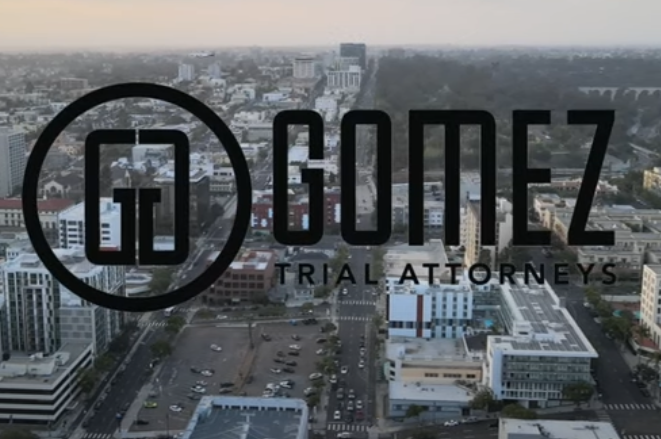If you ride a motorcycle, we do not need to tell you the sense of adventure and the fresh perspective that this mode of transportation has to offer. However, for all the fun to be had, there are some very real risks involved with riding a motorcycle on U.S. roadways. According to a report from the National Highway Traffic Safety Administration, 80 percent of all reported motorcycle accidents result in either death or injury to the rider of the motorcycle and/or his or her passengers.
One of the most serious injuries that a motorcyclist can incur in an accident is a traumatic brain injury. Read on for more information about what happens to the brain in a motorcycle crash, how this injury impacts every facet of the injured person’s life, and how you could recover damages related to a brain injury suffered in a motorcycle crash that was the result of someone else’s careless or reckless actions.
[lwptoc]
Traumatic Brain Injuries Following a Motorcycle Crash
Motorcycles lack the stability of four-wheel vehicles, as well as the protective features that passenger cars are equipped with, such as a steel frame, seat belts, and airbags. Motorcyclists are almost always ejected from their vehicles, leaving their bodies prone to injuries as it collides with other vehicles, objects, or the ground.
Because of this, motorcycle riders are many times more likely to become injured or die in an accident than the occupants of passenger cars and other types of automobiles. One of the most common serious injuries that can be sustained by a motorcyclist in an accident is a traumatic brain injury.
As explained by Mayo Clinic, a traumatic brain injury often results from a violent blow or jolt to the head or body. This can occur during a motorcycle accident. Some traumatic brain injuries—closed head injuries—involve damage within the skull. Traumatic brain injuries that involve an object penetrating the hard shell of the skull and entering the brain tissues are called open or penetrating head injuries.
While traumatic brain injuries are categorized as mild, moderate, or severe based on the severity of the damage and the person’s level of consciousness at the time of diagnosis, there is nothing “mild” about a brain injury. Even concussions, which are considered “mild” traumatic brain injuries, can result in permanent damage such as memory loss or chronic pain—“mild” doesn’t refer to long-term consequences, just the initial presentation of symptoms, and is sometimes a misleading adjective. No two brain injuries are alike, meaning that it is often difficult to determine the damage early after the injury occurs.
The brain is one of the most important organs of the body, as it is responsible for all of the body’s voluntary and involuntary responses. As important as it is, the brain has very little ability to heal after sustaining damage.
This is the reason why brain injuries typically produce permanent deficits, which can include:
- Loss of memory.
- Inability to control behavior, impulses, or emotions.
- Loss of the ability to communicate or to understand spoken communication.
- Loss or altered sense of smell, taste, or eyesight.
- Difficulty with organization or recalling events.
- Loss of mobility or difficulty with coordinated movement.
- A consciousness disorder in which the individual’s ability to wake or to be aware of his or her surroundings is impaired.
- Catastrophic reactions such as depression or anxiety.
Common Complications Experienced After a TBI
Traumatic brain injuries can produce severe complications, particularly early in treatment. This is why much of the early treatment after a brain injury consists of discovering and treating complications that can impair an individual’s ability to breathe and can cause increased damage to the brain.
Some of the common complications experienced after a traumatic brain injury, that was the result of a motorcycle crash, include:
- Hydrocephalus: Hydrocephalus is a condition that involves a buildup of cerebrospinal fluid on the brain after the injury. This buildup can result in increased pressure in the brain, which can cause further damage.
- Seizures: Seizures are a common complication of brain injuries, regardless of the severity of the injury. Seizures are most likely to be experienced in the early hours or days after the injury occurs, but can be recurring and can even happen several years after the injury. Often, physicians treating the brain-injured individual will provide anti-seizure medication as a preventative measure. Recurrent seizures that appear as a result of an accident are referred to as post-traumatic epilepsy.
- Infections: Infections are particularly common when a penetrating head injury introduces bacteria into the protective tissues that surround the brain, which are called meninges. Other parts of the body may also be susceptible to infection after the injury due to an individual’s immobility and impaired function.
- Fever: The most common cause of fever after a brain injury is an infection. However, other conditions can lead to a fever, including damage to the part of the brain that controls the body’s temperature.
- Blood clots: Blood clots in the brain after an injury are often the result of damage to the blood vessels in the brain and must be treated promptly to avoid issues such as strokes. Blood clots can also develop in the deep veins of the arms or legs after the injury as a result of a lack of mobility while the individual is hospitalized. It is equally important to detect and treat these clots, as they can lead to a potentially fatal condition known as a pulmonary embolism that is caused when a piece of the blood clot breaks free and travels through the bloodstream to the lung.
Widespread Impacts
Because of the permanent deficits that are caused by a brain injury, as well as the high risk of complications, this is the type of injury that causes widespread impacts to nearly every facet of an individual’s life.
Some of those impacts include:
- At work: Many brain injury survivors cannot work due to the permanent deficits caused by the injury, such as inability to recall events, loss of impulse control, and difficulty with coordinated movement. Of those who can work, many must undergo training to master new tasks, as the effects of the injury make it impossible to return to the job-related tasks that were performed before the accident. Those who can return to the job they held before the accident are often required to work on a schedule that is modified to accommodate the injury, with longer breaks, fewer workdays, and lighter workloads.
- At home: Brain injured individuals and their families often find that their familial relationships are forever changed by the injury. Parents, spouses, and children of the injured person may find themselves taking on the role of caregiver. Spouses may experience a loss of consortium, which is a legal term that refers to the loss of physical intimacy and companionship that often accompany hormonal and other changes as a result of the injury. The family can find itself in extreme financial distress as the main breadwinner cannot work due to injury, and the friends who lined the hallway with concern after the accident occurred generally fade away as they realize that their friend is no longer the person they enjoyed spending time with. It is not unusual for the family members of a brain injured person to state that they feel as though no one understands what they are going through.
- In the community: Brain injured individuals often find that their injury either prevents them from participating in activities and events that they previously enjoyed, or that their taste in such matters has changed.
The Cost of Living With a Brain Injury
About 1.7 million people sustain a brain injury each year, and many of these will require medical treatment for the rest of their lives as a result. Unfortunately, medically treating a brain injury is not an inexpensive proposition. Medical costs from treating a traumatic brain injury range between $85,000 to $3 million. Add the high cost with treatment to the inability of many brain injured individuals to return to work after the injury, and the statistics on homelessness begin to make sense.
Recent studies indicate that 53 percent of the homeless population in the U.S. is living with a brain injury. For some, the injury was a result of the often dangerous conditions homelessness presents. However, for others, the brain injury and its related impacts were the catalysts for homelessness.
The Centers for Disease Control and Prevention (CDC) estimates that the economic cost of treating brain injured individuals comes with an annual societal price tag of $76.5 billion. Approximately 90 percent of those costs are related to the treatment of the most severely injured individuals—those whose injuries result in extensive hospitalization or death.
The One Proven Method to Avoiding Head Injuries in Motorcycle Accidents
The use of Department of Transportation-approved motorcycle helmets is the single method of preventing traumatic brain injuries from motorcycle accidents. Currently, motorcycle helmets are preventing $17 billion in societal harm each year, and another $8 billion would be spared if there were universal helmet laws, according to the safety advocacy organization, Safe Roads.
The National Highway Traffic Safety Administration estimates that, in a single year, helmets have saved the lives of more than 1,800 people. Motorcycle helmets reduce the risk of suffering a traumatic brain injury in a motorcycle crash by 69 percent, and reduce the risk of death by 42 percent.
Recovering Damages After Your Accident
If you or your loved one has suffered a traumatic brain injury as a result of an accident that someone else’s careless or reckless actions caused, you could prove that someone else was responsible for the injury, expenses, and life impacts through a motorcycle accident lawsuit and recover damages related to your injury.
To show that someone else was liable for your accident, you must prove:
- That the at-fault party owed you a duty of care. The duty of care depends on the cause of your crash and the at-fault party’s role in that crash. For example, if your accident was caused by the at-fault driver of a passenger car, the duty of care that the driver owed to you was to drive his or her vehicle safely and legally.
- There was a breach in the duty of care. The breach refers to the actions that the at-fault party took that were contrary to the duty of care that he or she owed to you. Using the at-fault driver as an example, the breach would refer to the behavior that he or she exhibited to cause the accident, such as speeding, alcohol impairment, distracted driving, or failure to yield the right-of-way.
- The breach in care resulted in the accident, which caused your injury and subsequent expenses and impacts on your life.

Some of the damages you might recover after a brain injury sustained in a motorcycle crash include:
- Medical expenses, including estimated expenses that you will incur in the future as a result of your injury.
- Lost wages due to being too injured to work or having to miss work to attend an injury-related medical appointment.
- Loss of future earning capacity, if your injury results in permanent disabilities that prevent you from returning to the job that you had before the accident.
- Property damage you sustained in the accident, such as the cost of repairing and replacing your motorcycle.
- Physical pain and suffering.
- Emotional distress.
- Loss of consortium.
- Lost enjoyment of life.
Do you have questions about a brain injury after a motorcycle accident? Let a brain injury lawyer help you understand your legal options for recovering damages after your motorcycle accident. Set up a free case evaluation with a brain injury attorney today.
Gomez Trial Attorneys
655 West Broadway, Suite 1700
San Diego, CA 92101
Phone: (619)-237-3490







